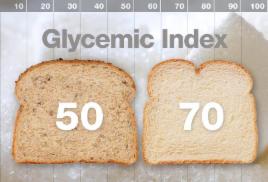Can a Smoothie Really Give You Energy?
During times of high stress or when working
overtime to meet deadlines, nutritional needs are relegated to a low
priority. Ironically, it is when
responsibilities demand a high degree of concentration, attention to detail and
stamina that the body particularly needs the right kind of nutrients to
maintain energy levels.
If you can take a break in the morning and
mid afternoon to prepare raw smoothies, your energy and performance – both mental
and physical – will benefit. Are there
supplements that can be added to smoothie recipes to get even more energy? The answer depends upon the type of energy
you require.
Add Vitamin B-s and its derivatives to your green smoothie.
The Quick Fix
The post-lunchtime cup of coffee or ginseng tea can combat fatigue, at least for a while. Other supplements, such as bitter orange, guarana, and kola nut, can be added to raw smoothies for a short-term natural stimulant effect. Red pepper and green tea are also known to produce temporary alertness. The active ingredient in most of these stimulants is caffeine, and nearly everyone has experienced the energy crash when the caffeine has left the body. At least for a few hours, these stimulants do rev up the metabolism and make a person perform better both physically and mentally.
Natural stimulants, when taken in moderation and as part of a nutrient-rich diet, can be an effective quick fix to improve concentration or keep an active person from feeling completely exhausted. They are not the solution, though, for ongoing fatigue. In fact, relying on even natural stimulants could mask vitamin and mineral deficiencies or other health problems that should be addressed.
Carbohydrates and Calories
 Because the body strives for balance – or homeostasis –
unusual energy requirements must be met by increased calories in order to
function properly.
Because the body strives for balance – or homeostasis –
unusual energy requirements must be met by increased calories in order to
function properly.
Additionally, there should be a balance in your activity level and the number of calories consumed. Athletes and performers require large amounts of carbohydrates so that they have the energy they need for peak performance.
Not all carbohydrates are created equally. The sugary energy drinks and energy bars, for instance, cause a sharp rise in blood sugar and the body responds by creating insulin to keep up with the demand. The carbohydrates in these products rank high on the (*) glycemic index and can lead to health problems.
Like the temporary benefits of caffeine, flooding the body with sugars can provide short-term energy spikes. These energy drinks can also be a good way to replenish carbohydrates depleted from exercise. However, if your daily routine involves more sitting than running, the benefits from these energy drinks will be dramatically reduced. Fruit and soy products, which are listed in many raw smoothies recipes, are low on the glycemic index and are a better choice.
The Benefits of Vitamin B Supplements
The family of “B” vitamins includes B6, B12, folic acid, niacin and thiamine. Among the foods rich in vitamin B are soymilk and enriched cereals. Fish, lean beef, cheese and eggs are great sources of vitamin B12; avocados, asparagus, broccoli and carrots are good foods for vitamin B6. Vegetarians and older people are most likely to be deficient in this nutrient, especially in vitamin B12.
An article on the (*) University of Maryland’s Medical Center website notes that studies indicate many health conditions, including fatigue, respond favorably to vitamin B supplements. Although stating that more research is needed, the article mentions that people with no “B” vitamin deficiency as well as those with chronic fatigue syndrome may find their energy levels improved after receiving injections of B12.
Because this vitamin is water soluble, the body discards what it doesn’t use. So unlike vitamin A, which can build up in the body, vitamin B is non-toxic. If your schedule does not allow you to obtain the recommended daily allowance of “B” vitamins, which is listed below, consider adding brewer’s yeast for B12. Use a smoothie blender or a high performance blender to add vegetables high in vitamin B6.
|
Type of Vitamin B |
Men |
Women |
|
B1 (Thiamin) |
1.2 to 1.5 mg |
1 to 1.1 mg |
|
B2 (Riboflavin) |
1.3 mg |
1.1 mg |
|
B3 (Niacin) |
16 mg |
14 mg |
|
B6 |
1.3 to 1.7 mg |
1.3 to 1.7 mg |
|
Folic Acid (or Folate) |
400 mcg |
400 mcg |
|
B12 |
2.4 mcg |
2.4 mcg |
Source: Vitamin Insight
Experts at the (*) WebMD website suggest a B complex vitamin supplement be added to the diet if you suspect that your diet is lacking these nutrients. The most commonly recommended approach to maintaining a consistent energy level, though, is to get enough sleep, exercise at least 30 minutes each day, and eat a variety of raw vegetables, fruits and lean meats.
(*) References:
- Glycemic Index- http://www.webmd.com/vitamins-and-supplements/lifestyle-guide-11/energy-boosters-can-supplements-and-vitamins-help
- University of Maryland's Medical Center Website: http://www.umm.edu/altmed/articles/vitamin-b12-000332.htm
- Vitamin Insight / Source: http://www.vitamin-insight.com/basics/daily-intake-chart.aspx
- WebMD Website -
http://www.webmd.com/vitamins-and-supplements/lifestyle-guide-11/energy-boosters-can-supplements-and-vitamins-help
(C) 2014 OmniBlender.COM LLC